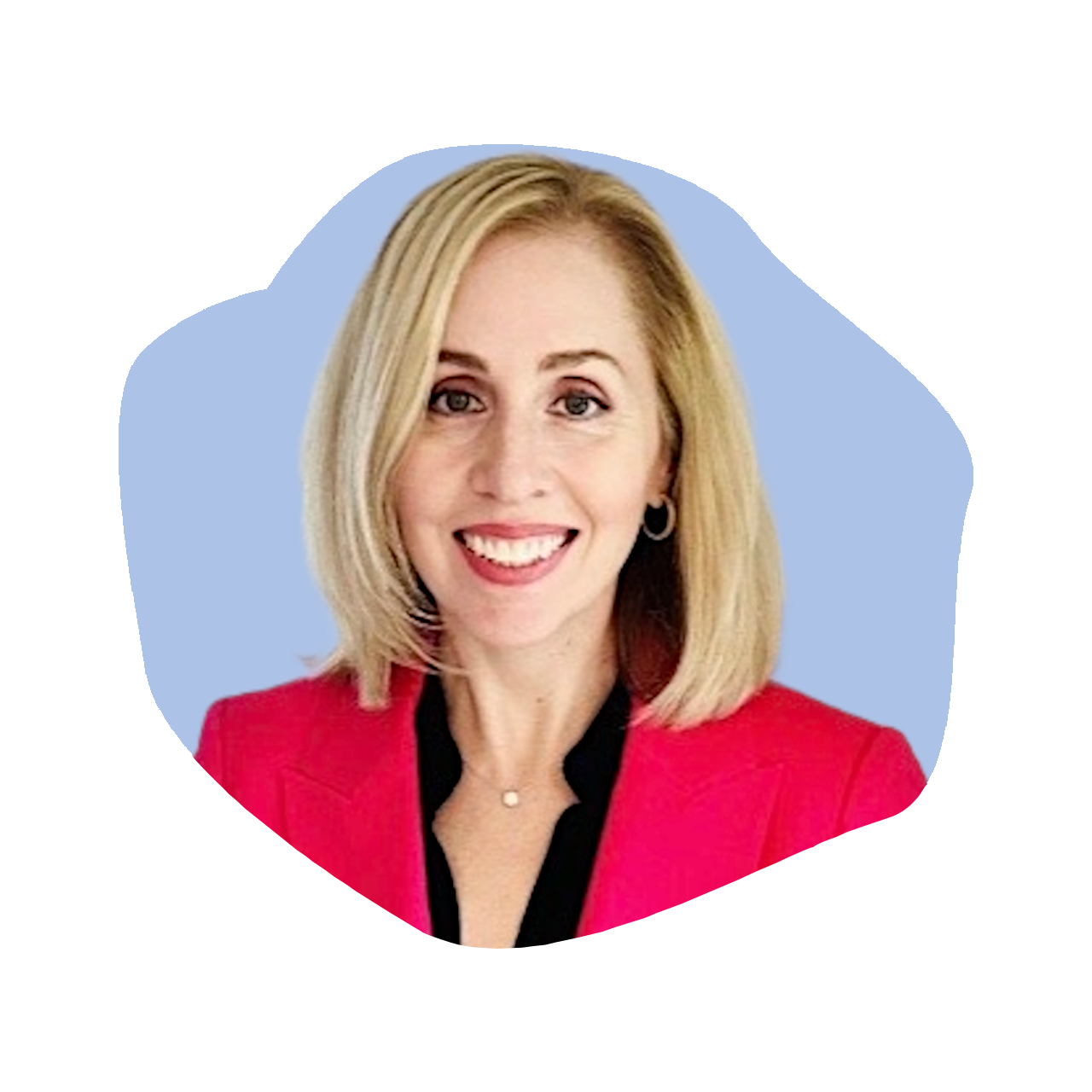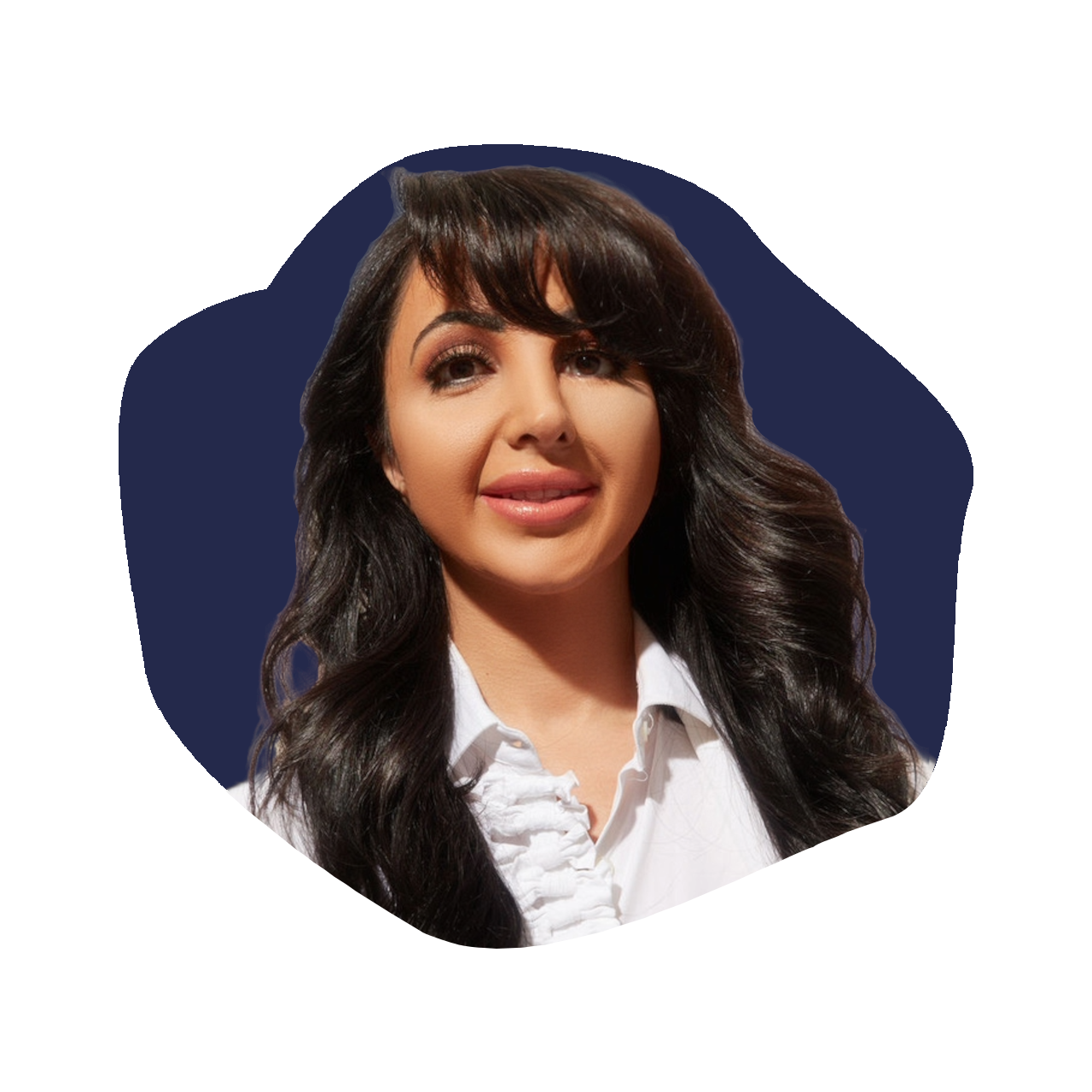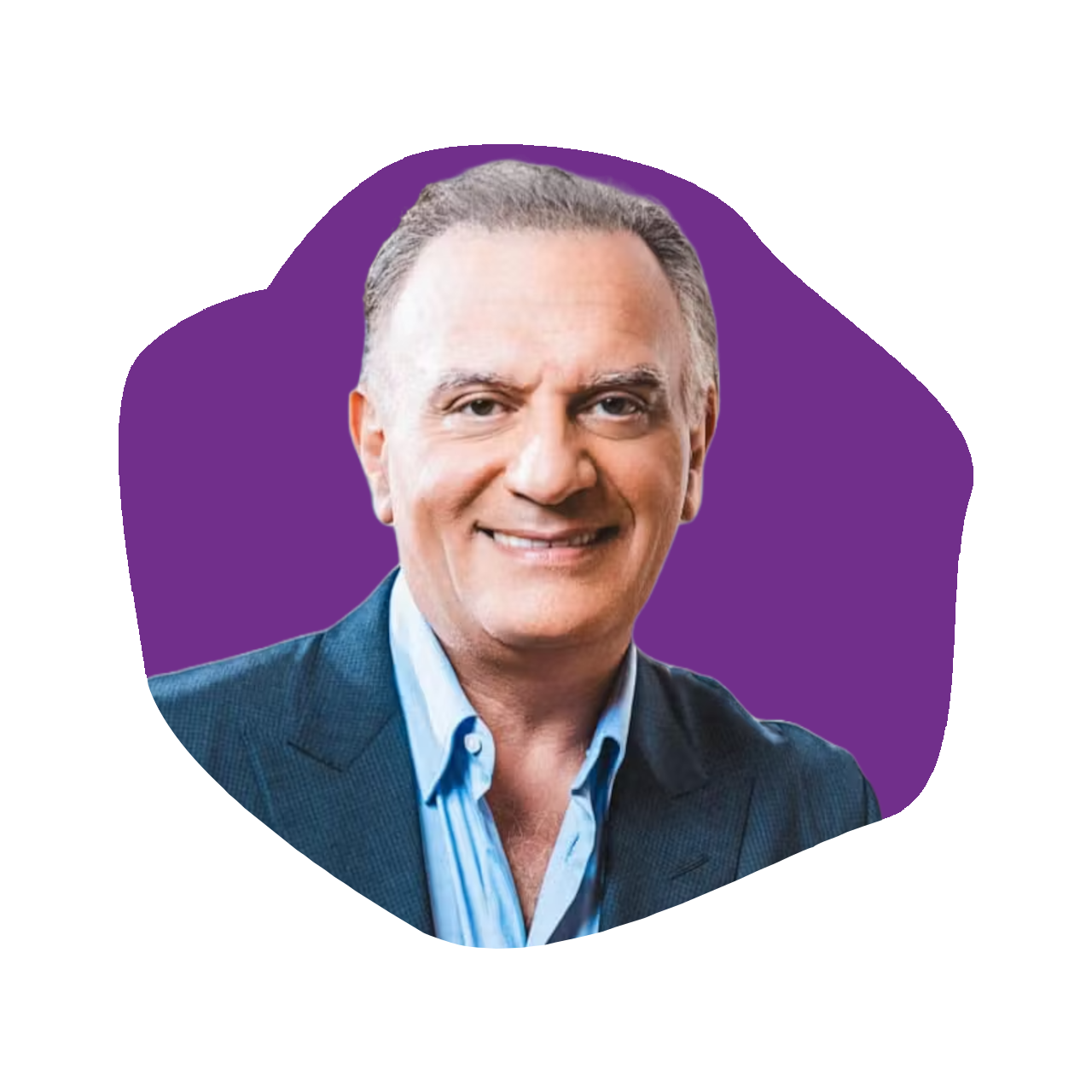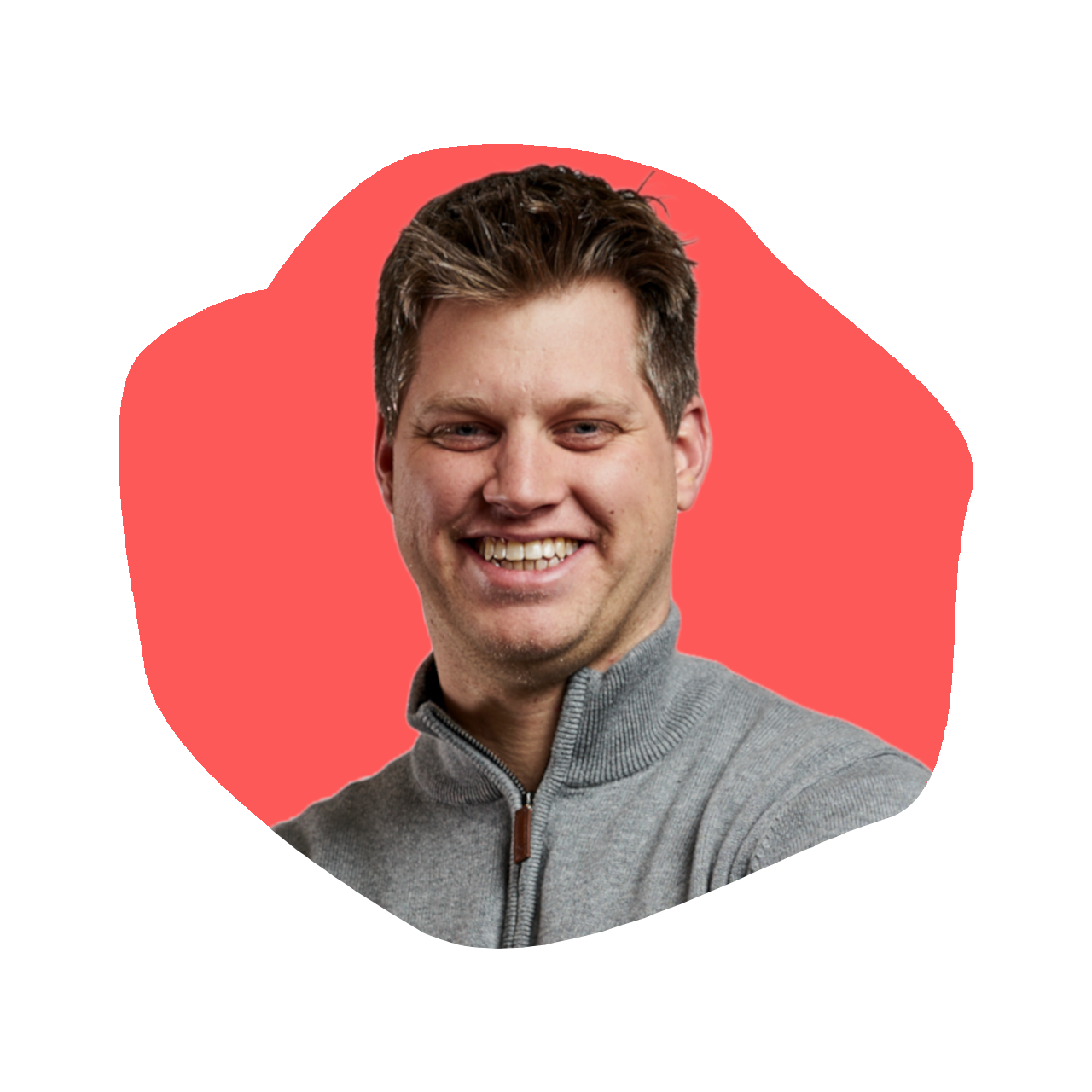Scott Harrison – Founder & CEO of charity: water, Author of NYT Bestseller, THIRST
Episode 197
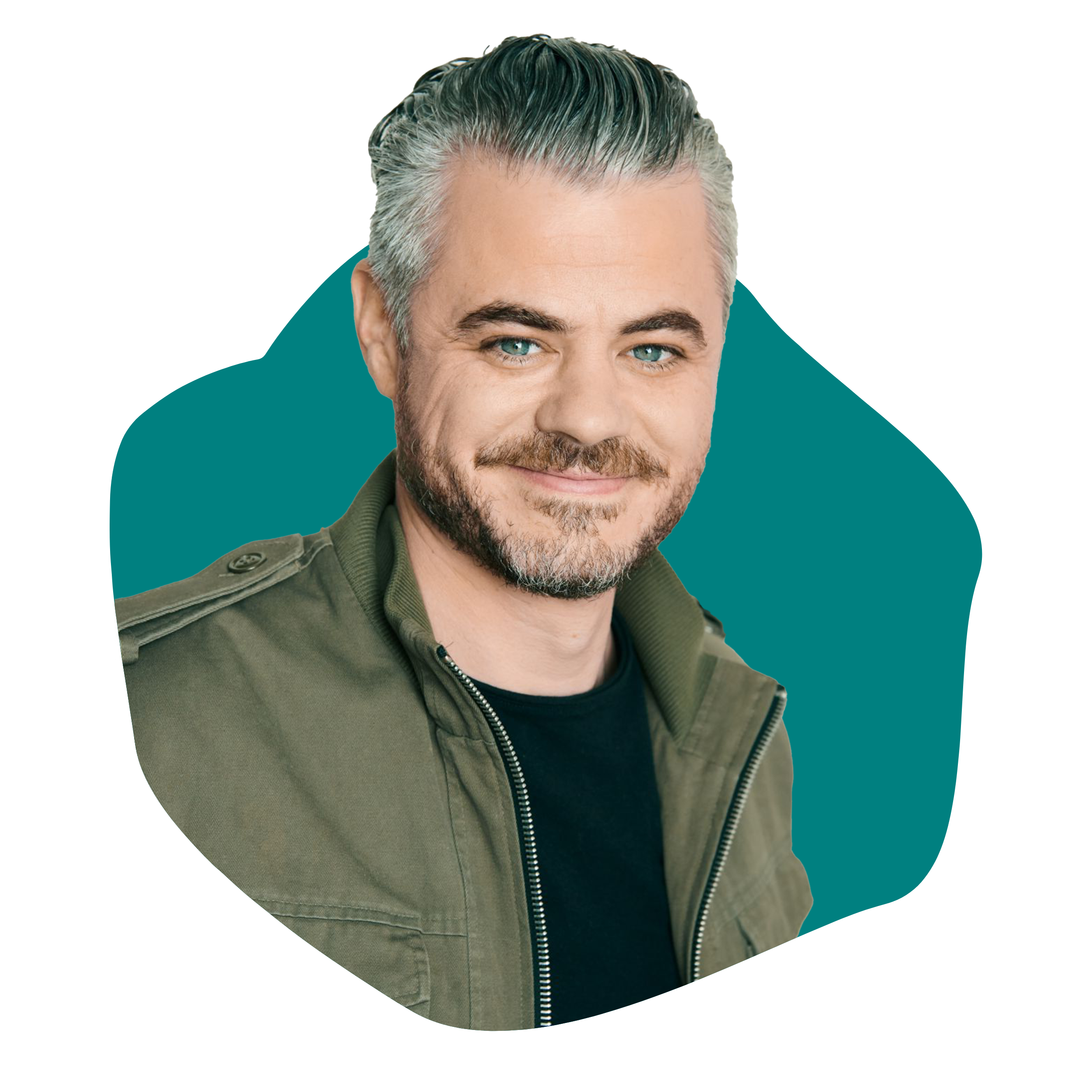
He sold everything he had, moved across the world, and started one of the most successful non-profits of today. Today’s guest is Scott Harrison, the founder and CEO of charity:water, a non-profit focused on bringing clean and safe drinking water to developing nations. Scott is also the author of the book, THIRST, a powerful story documenting his entrepreneurial journey from club promoter to humanitarian. Scott shares how leading a clear vision to bring clean drinking water to rural communities is not only possible but greatly fulfilling. Start your week off right with this episode of #TheKaraGoldinShow
Resources from
this episode:
Enjoying this episode of #TheKaraGoldinShow? Let Kara know by clicking on the links below and sending her a quick shout-out on social!
Follow Kara on Instagram – Linkedin – Twitter – Facebook
Have a question for Kara about one of our episodes? Reach out to Kara directly at [email protected]
More links from Scott Harrison
Transcript
Scott Harrison 0:00
I just wanted to bring clean water to everybody in the world,
Kara Goldin 0:02
I am unwilling to give up. That I will start over from scratch as many times as it takes to get where I want to be, I want to just sort of make sure you will get knocked down. But just make sure you don’t get knocked out knocked out. So your only choice should be go focus on what you can control control control. Hi, everyone, and welcome to the Kara golden show, though, join me each week for inspiring conversations with some of the world’s greatest leaders. We’ll talk with founders, entrepreneurs, CEOs, and really some of the most interesting people of our time. Can’t wait to get started. Let’s go. Let’s go.
Hi, everyone, its Kara Goldin from the Kara Goldin show. And I’m so excited to have my next guest here. Scott Harrison is the founder and CEO, and author. We’ll talk about that as well, but of a company called Charity Water. And for those of you who are not familiar with charity, we will definitely hear a lot more from Scott about this incredible organization, as I said he founded and he is running. So just a little bit about charity. And Scott, do you call it charity or charity? Water? Charity Water? Charity Water? Okay, I know it’s not very creative, right? We’re a charity that helps people get clean water. I love it. I love it. So it’s a nonprofit focused on bringing clean and safe drinking water to developing nations. And Scott started Charity Water back in 2006, after he witnessed firsthand what a lack of clean water could do to our community. And many years later, 15 years later, Charity Water has raised more than $557 million in 100, or sorry, to helping many, many people in many countries. 12 point million people and 20 I have 29 countries. Is that right? Yeah, that’s
amazing. And as I mentioned, he’s also the author of a book that I read when it first came out. It’s an excellent book, and I reread it prior to the podcast called thirst. So good, you need to write another book. I’m sure there’s many, many stories after this one was out as well. And and it’s such a good book thirst is is really, really great. Thanks. Scott has also been I should mention recognized as Fortune Magazine’s 40 under 40, Forbes magazine 30 list and was recently number 10. And fast company’s 100 most creative people in business. So he is a total rock star. And we are so excited to have him he just was telling me that he moved to Nashville after many years in New York. So we’ll hear all about that. So thank you, Scott, for coming and sharing about this. So take us back to the beginning. Did Did you always know that you were going to do something and kind of the, you know, the nonprofit section, the sector, the water sector? I mean, did you always know that you were going to be giving back in some way?
Scott Harrison 3:14
No, I was a club promoter for 10 years. So I moved to New York City at 18 to rebel against a very Christian conservative upbringing. And I thought the best way to get back at my parents in the church would be to become the biggest nightclub promoter in New York City. And that was my big idea. 18 I started smoking and drinking, and chasing models around the world and doing drugs and all of these things that I thought would, would bring me happiness and success. And over over the next decade, I climbed up that ladder of of New York City kind of social life and worked at 40 different nightclubs. And this was this was a life that, you know, you’d have dinner at 10 at night, the club at 12 some after hours seedy place at five, and then kind of stumble in the, in the bed at 10am. You know, when other people are on
Kara Goldin 4:10
I remember, I I’m embarrassed to say I remember those days as well. So, you know,
Scott Harrison 4:15
well, you know, it was probably a shorter. Unfortunately, with 10 years of my life. And after, you know, after a decade in the business, I wound up emotionally, spiritually morally bankrupt. This kind of degenerate, decrepit, soulless human being at 28 years old that had come so far from faith and any sort of morality that I’ve been brought up with and you know, thankfully I came to this realization I had a massive life change I sold everything I owned, and said, Can I make my life look exactly the opposite? What would it look like to be useful? What would it look like to serve others can any my talents actually make the world a better place, you know, could I could I find a purpose. And it took me to a humanitarian mission in Liberia, West Africa, a post war country, where I embedded with some doctors and surgeons as a photojournalist. And it was really there in a two year period of time where I saw people drinking dirty water for the first time. And I think this was in such sharp contrast because I had been selling water in my clubs for $10 a bottle. And I remember people would come in, they would order water, you know, 10 bottles in their table, 20 bottles in their table, they wouldn’t even drink it, they would just drink the champagne or the vodka. And I saw, you know, human beings dying because they were drinking diseased water. And I was 30 at the time, and I had sold everything I had, I’d quit the drinking, and the smoking and the drugs and kind of, you know, started started living clean. And I just came back to to New York after this experience. With a very clear life’s mission. I just wanted to bring clean water to everybody in the world. I bought it was crazy that human beings alive today on planet Earth, don’t have clean water that 10% of the planet is drinking dirty, disgusting, diseased, toxic water. And and we know how to solve the problem.
Kara Goldin 6:26
So let me let me stop you there. So So when you’re in Manhattan, and did you ever friend working on this, or how did you get Connect? I mean, how did you go from New York City? No,
Scott Harrison 6:37
no, I got this crazy idea. So I you know, I was raised in the Christian tradition. And I got this crazy idea to tie one of the 10 years that I’d selfishly wasted, you know, back to people in need. So I just started applying to famous humanitarian organizations I’d heard of over the years, Doctors Without Borders, World Vision, Save the Children, and 10 organizations denied me. And one organization accepted me so I really had limited options. And that was an organization going to post war Liberia, West Africa, and they took me on as a volunteer photojournalist on the mission. The crazy thing was I also had to pay them $500 a month for the pleasure of volunteering. So it was it was a really the opposite of my life where you
Kara Goldin 7:23
are a photographer or were you just like Well, I was Yeah,
Scott Harrison 7:27
kind of as a hobby. Yeah, you know, I put up a bunch of pictures on a blog and and I’d gone to NYU part time and gotten just to a general communications degree so I was a pretty good writer, I was a pretty good photographer. And I had this network built in over a decade of 15,000 emails of people who had attended my my parties, so I was able to tell them a very different story you know, kind of on a dime instead of inviting them to the product mega store opening in Soho. I started telling them of the amazing work these doctors were joining of people getting access to clean water as well in in Africa Can
Kara Goldin 8:05
you imagine you probably I talked a lot about when I was starting my company hint how I moved from you know nice tech role into you know, starting a beverage company and the number of people I heard from I didn’t necessarily invite their opinion but heard you know, what are you doing? Why are you starting this water I can imagine people saying Scott it’s not you’ll you’ll be fine don’t don’t go to Liberia I mean, this is like but like people were intrigued
Scott Harrison 8:35
i mean i will say you know yeah, I mean many of them had done cocaine with me you know two weeks previously right with three in the morning and some nightclub and you know, they were a little cynical like oh, this guy’s gonna go save the world now. Yeah. Oh what Scott’s a humanitarian you know, he’s probably just trying to get girls right so there was definitely a lot of cynicism at first
Kara Goldin 8:56
but so often I feel like if you don’t kind of go through the journey right I mean, you talked about how 10 had rejected you different ones that you have applied for but that one said yes calm and and look at this you were able to actually generate the idea that would become Charity Water today I mean, right just from that moment and if you didn’t go Do you ever think about that like if you didn’t actually I mean it just it probably I think back a lot where I where maybe I had the doubters maybe I had the you know doubts of my own like what am I doing and then all of a sudden you just sort of roll with it and then just the Steve Jobs used to say I talk a lot about the dots eventually connect you know, it’s just yeah, to while
Scott Harrison 9:49
it was pretty ridiculous. I had zero experience. Yeah. And you know, to start a water charity or, you know, to hear me running around New York City at 30 years old saying I’m going to bring Millions of people clean drinking water. It certainly seemed like a farce to some people. But, you know, again, because I had this two year authentic experience, there was also a credibility that came with what I what I had done, you know, I hadn’t gotten on a mission trip for a week, you know, I had lived in this country for I lived in West Africa for a year and a half. And I had, I had seen this up close and personal, both the problem and also the solutions, I came back to New York City, you know, two years later, I had 50,000 photographs that I had taken. So I had these stories, I had these photographs, and this kind of, you know, clear vision of what I wanted to try to do. And then I think there was just a lot of passion and idealism, and I would I would take, you know, 15 meetings a day, and 14 people would say, No, thanks, I’m not going to help. This is too new, you know, who knows if you’re going to be successful? And then one would say yes. And then you would kind of grasp that one. Yes. And you would go on to the next 15 meetings? And then, you know, a couple months later, two would start saying yes, and three out of 15 would start saying yes.
Kara Goldin 11:10
So what was your original ask when you were having these meetings?
Scott Harrison 11:14
Well, you know, I had a, I had a vision to structure Charity Water very differently than a traditional charity. Again, being 30 when I started this, I didn’t know anything about philanthropy, I, I was very inexperienced, and I just came at this like a, like an entrepreneur might, what problem Am I trying to solve? I’m trying to get everybody in the in the world clean water, okay, that’s gonna take 10s of billions of dollars, you know, if not, you know, $100 billion to achieve. And I realized, so many people just didn’t trust charities, so many everyday people working at Sephora, or Chase Bank or MTV, they were cynical, they were skeptical. They’d say, Where does my money go? How much of my money is actually going to reach the people in need? So I had this idea, what if we can separate the overhead from all the public donations, and, you know, promised the public that 100% of every dollar they gave, whether it was one single dollar or a million dollars, would go directly to build water projects, that would help people get clean water. And then in a separate bank account, I would go and raise all of the overhead from entrepreneurs, from business leaders, from people who understand you needed to recruit and retain the best talent to build a world class organization. So that was kind of the big idea. It was, you know, one out of like, a million charities, we’re doing that. And, and we’ve run this with two bank accounts. So I always had to figure out what my ask was, you know, if I was let’s say, I was meeting with you, I would probably ask you for a donation to help fund the next employee, right? Because you’re an entrepreneur, and you understand that, that that talent is so important to build something. If I was talking to somebody who was cynical about charity, I would say, Hey, would you help me build a water project in a village to give them clean water? So I was constantly you know, trying to assess which which bank account to raise money for? And and 15 years later, you know, with $100 million budget, it’s still very much the same. You know, we’re we’re trying to figure out what is the right fit for, for any given donor or supporter, so
Kara Goldin 13:33
interesting. So you, you go from the nightclub industry to starting a nonprofit, and raising money, not here, like down the street, I mean, for countries all over the world, and what, what similarities and sort of opening a new club versus starting this entirely new project? And I mean, what were their similarities and kind of kick starting and raising awareness, raising money that you saw is like, Oh, I can do this.
Scott Harrison 14:06
I think the skill that I’d learned was promoting, I was promoting the idea for 10 years that if you got past the velvet rope, if you sat at VIP table number one, next to Jay Z, or puffy, or you know, Jim Carrey, if you spent $1,000. On booze, you know, your life had mean Yeah, you had arrived. And you know, I think the story that I’ve been thankfully telling for the last 17 years is if you are looking to give of your time and your talent and your money in service of others, if you’re if you’re kind of not embracing the apathy that comes with seeing all this suffering in the world, but if you’re engaging, if you’re activating, then your life has a greater purpose and a greater meaning. So I’ve been you know, preaching this message of generosity and compassion, you know, for 17 years versus, you know, get past the velvet rope and get or wasted relate, you know?
Kara Goldin 15:05
Yeah, it’s it’s so interesting. So you, what was the first year like, in building this company? I mean, what was what was the hardest part?
Scott Harrison 15:15
Well, it was a lot of meetings and you know, the hardest part about our work. And you know, you’re in the liquids business. So, you know, most people just take this stuff for granted, we take clean water for granted, you know, everybody, I guarantee everybody listening or watching this did not wake up this morning and take a shower, or, you know, make their coffee, or, you know, grab a hint out of the refrigerator, you know, on their way to the gym and say, Boy, I’m so grateful for the clean water, you know, I need to do something about the 771 million people globally, who have never tasted clean water. Right? It’s just, it’s not top of mind. This is not a problem we experienced in the developed world. Even if you’re in a low income, you know, how’s it like, you have water, right? We have water. In America, we have water, you know, throughout Europe. So that’s kind of the biggest challenge is just getting people to understand this is a massive issue. It comes with extraordinary amount of human suffering, it deeply affects women and girls, who are the ones that are that are bearing, you know, this burden. Women and Girls are the ones that are bearing this burden. And it’s also a solvable problem. We know how to do something about this. So the first year was just telling that story on a laptop going back and forth, and back and forth, and trying to get people excited about about engaging in this.
Kara Goldin 16:42
That’s how much did you raise that first year? Do you remember? I think 2
Scott Harrison 16:45
million. So it was 2 million, the first year, 6 million the second 9,000,016 2328 3545. You know, it was it was kind of a lot of growth in those early years and a lot of momentum,
Kara Goldin 17:00
what made you keep going when you had those hard days? Those lots of nose? Those?
Scott Harrison 17:06
Yeah, seeing the progress. I mean, knowing that as we moved this forward, people were getting access to clean water. And I’ve been to 70 countries now I’ve been to Ethiopia 31 times. So it’s really important to me to keep getting out there every couple months, in the villages, you know, seeing the progress knowing that we were really making a difference.
Kara Goldin 17:26
So huge. So how has the pandemic impacted a lot of your water projects throughout the world?
Scott Harrison 17:34
Well, there were some of the let me let me say at the top, I think, well, if you all remember the beginning of the pandemic, we were all being told to wash our hands like crazy, right, and we were watching Amazon boxes as they came in. So I think people realize the link between clean water or water and health and clean water is is more important than ever during a global pandemic. And so many that 29 countries where we work, you know, there’s not a single ventilator in the country. I mean, we’re talking about ICU bed capacity here. There are no IC use in many of these areas. So the prevention was so important or so. So Charity Water employs about 1500 locals now around the world, through our partner network. And they were out there with masks on drilling through the pandemic, building hand washing stations, talking about social distancing, at Charity Water points, rehabilitating broken water projects at health clinics to make sure these clinics had the clean water that they needed. So the work was really able to continue because they were classified as frontline essential workers. I think similar to your experience as well, right? Nobody wanted to stop the clean water from flowing during the pandemic. So they obviously took a lot of precautions, but we were able to continue the work and get you know more than a million new people clean water last year alone.
Kara Goldin 19:01
That’s amazing. What’s been the toughest country to do your projects and
Scott Harrison 19:06
Oh gosh, probably Ethiopia because a civil war broke out about a year ago in the north which is where we have a high concentration of projects and you know this is a country I know and love Well again, I’ve been there more than 30 times I’ve taken 400 different donors there over time. And it just a devastating Civil War broke out between the people of Tigray and the central government and you know, the the the suffering the the toll on on families on children is just, you know, unexplicable and it’s made that country extraordinarily difficult to work in.
Kara Goldin 19:43
I’m sure you get asked this question a lot. So the US, obviously it’s different types of issues. As I one of the projects that I’ve been working on and Washington is is around clean water and getting things like pee fast And things like that out of our water supply, which, especially in sort of lower income communities can be hidden very nicely, but, but can actually cause, you know, cancer causing, you know, ingredients, etc. Do you get pressure at all to folk to look at the US? You’re a US company? I mean, have you thought about doing some projects in the US just because you know how to get the stuff done?
Scott Harrison 20:29
Yeah, I mean, one of the I’m a big believer in focus. So we have built a 15 year proficiency on helping the rural poor in the world get access to clean water, so we don’t even work in urban environments. of the 770 million people globally without water. 18% of them live in cities and towns, and 82% of them live in rural environments. So we are only focused on rural, we’re then focused on the lowest income countries around the world. America officially has 100% water coverage. We know that’s not true. We know there’s pockets of Native American communities when those pockets in Appalachia, Ethiopia has 50% water coverage. So there are literally 50 million humans in a country like Ethiopia that don’t have clean water. So we’ve really been hyper clear about our focus. I’ll give you an example. When when Flint happened, you know, a bunch of people were like, hey, what should Charity Water do in Flint, you know, and our execs got together and said, Flint does not need a New York City, charity, with a focus of, you know, Africa, India, Southeast Asia, parachuting into Flint, Michigan, pretending we have any idea how to solve a billion dollar infrastructure piping crisis. So we just sent our donors to a bunch of local Flint charities and said, Give directly to these orgs, who have been working in Flint, Michigan, for 20 years, don’t give us a single penny. And there is an org that we send all of our domestic interest to called dig deep. George McGraw is the founder there, and they are working on those Native American lands and in pockets of Appalachia on the US water crisis. That is what they do uniquely, they don’t work at all overseas. So you know, I’ll tell somebody if I come off stage, and they’re like, well, how come you aren’t working? I say, here they are, please give them money. Don’t give us a penny, if that’s your passion. You know, normally, they’re gonna give money to nobody. Right? There’s got to be
Kara Goldin 22:28
well, and I think what you touched on, too, with any entrepreneurial venture is you, you need to know where to put your stakes in the ground. It’s like people will say to me, you know, I like can’t, but I just wish that you added a little bit of sweetener to it. And I’m like, there’s a lot of knows.
Scott Harrison 22:46
There’s another product they can buy. Right, right.
Kara Goldin 22:48
It’s not my thing. And I think knowing your lane. And maybe that’s not the right term, but knowing what your stakes are in the ground around I think is such an important piece. And and I totally, totally agree. So you launched a super cool awards program or read about called tiny heroes. Can you share a little bit more about that?
Scott Harrison 23:11
Yeah, I mean, so Charity Water now, you know, we’ve raised about $600 million from a million extraordinary, just, everyday people, to be quite honest around the world. You know, we’ve worked with a few companies, but it’s really about everyday people. We focus on individuals, and so many kids have inspired us. We’ve had eight year old sell lemonade, love it. 12 weekends are in a row, we’ve had four year olds paint for Charity Water and raise $5,000 we’ve had people walk across the country. We’ve had kids donate their birthdays, not accept any gifts, not throw themselves, parties to raise awareness. So we wanted to honor you know, some of these kids who had made a big impact kids have raised millions and millions of dollars for Charity Water, and and then we want to kind of look at them and their impact 10 years later, so some of the kids 10 years ago were six now they’re 16 some of them were 11. Now they’re 21. So this tiny heroes campaign is really just a way to honor them, honor their camp contributions, and hopefully inspire you know, this next generation of young kids of activists who can Yeah, again say like I could do something that would help people get clean water, you know, it costs $40 to give one person clean water thing for 10 years $40 right, that’s not that much money. And there’s a lot of kids that can go sell $40 worth of lemonade, and help one person or $400 and help 10 people and and that we’ve just seen, you know, a movement now across 147 countries have supporters kind of make clean water something important to them and and engage with us.
Kara Goldin 24:54
I love this so much. So not only have you shown You can actually go do good but I think also just the way you’ve done it from like I said, I loved your book thirst, you talked about just the events that that you have to raise the money. You’ve done it and, and such a unique way and then just activating your email lists and and i mean just you’ve been able to do I think what many kind of stodgy philanthropic organizations have not been able to do I think you’re just you’re definitely the blueprint for many, not only entrepreneurs for doing good, but also for people who are wanting to start something around. Good. No, I mean, it really truly so tell us more about where we can find you where we can find out more about Charity Water, everybody definitely pick up the book, I mean, it Scott, I think you need another book too, because it was a it was a good one. And it really, printer, it had me, you know, really thinking and as I as I say I love reading entrepreneurial books, because the journey is is never I mean, people just think, oh, that guy Scott, he just woke up one day and raised a ton of money and he helps people, right, and people that I
Scott Harrison 26:15
know, lots of challenges. And, you know, I wanted to write, I wanted to write the book too, just to talk about some of the challenges those moments where we were almost bankrupt or insolvent. And, you know, but sticking true to your values and your vision, you know, and kind of fighting through that, how to get involved, we have this amazing community called the spring. And you know, think of this as Netflix or Spotify, or Amazon Prime for clean water, except you don’t get music and you don’t get TV and you don’t get free shipping, or packages turning up at your door in two hours. And it’s a it’s a membership community where people give a little bit every month 10 2030 $40 a month, and 100% of that money helps people get clean water, and then we report back on the impact. So you know, maybe there’s someone listening that could that could donate 40 bucks every month, and at the end of the year help 12 people get clean water. And that’s the future of Charity Water which is really this global community of people showing up loyally giving a little bit every single month so that’s probably the number one thing people could do I mean we have people sponsor whole communities as I said is 129 entrepreneurs now that paid for the overhead of the org and love you know, which is much bigger donations but I think that the best way people can engage just go to the spring calm the spring.com and you can sign up in less than 20 seconds and learn more about that community there’s some videos online you can help us share and get the word out and that’s that’s one way everybody could tell that’s kind of the future you know, a lot of people coming together and giving a little bit you know allows us to have a really big kind of dependable growth impact going forward. I
Kara Goldin 28:05
love it well thank you so much Scott Harrison very very great to have you here this morning and thanks everybody for listening and you can find me on all social at Kara golden with an eye and if you haven’t had a chance to read my journey and my story in my book, it’s called undaunted, overcoming doubts and doubters. I hope you’ll pick up a copy or get an on Audible as well. It’s been a lot of fun. I can’t believe it launched a year ago, this this month. So it’s it’s pretty crazy.
Scott Harrison 28:38
Well, you need to write another book.
Kara Goldin 28:39
I know Well, actually, it’s, I as I have said I turned it all in right before the pandemic and I feel like you know, the last 18 months and in terms of leading a company and and, you know, learning about being an essential product during a pandemic and not laying off anybody in the process to but instead just trying to figure out what other roles people can do in the company when offices which we were about 15% of our overall business was was food service corporate food service, so it that shut down and then we just reallocated people all over the place. You just have to none of this stuff is I always say and I think you’ll agree with me is brain surgery. It just takes a lot of thinking and yeah, it’s exhausting at times, because you have to think, right about so much of how, how, what can can you do? And those are the stories that I really try and get on my podcast. So anyway, thanks, everyone. Thank you so much. And thank you, Scott.
Scott Harrison 29:43
Awesome. Thanks for having me.
Kara Goldin 29:45
before we sign off, I want to talk to you about fear. People like to talk about fearless leaders. But achieving big goals isn’t about fearlessness. successful leaders recognize their fears and decide to deal with them. Head on in order to move forward. This is where buy new book undaunted comes in. This book is designed for anyone who wants to succeed in the face of fear, overcome doubts and live a little undaunted. Order your copy today at undaunted, the book calm and learn how to look your doubts and doubters in the eye and achieve your dreams. For a limited time, you’ll also receive a free case of hint water. Do you have a question for me or want to nominate an innovator to spotlight send me a tweet at Kara golden and let me know. And if you liked what you heard, please leave me a review on Apple podcasts. You can also follow along with me on Facebook, Instagram, Twitter and LinkedIn at Kara golden thanks for listening





